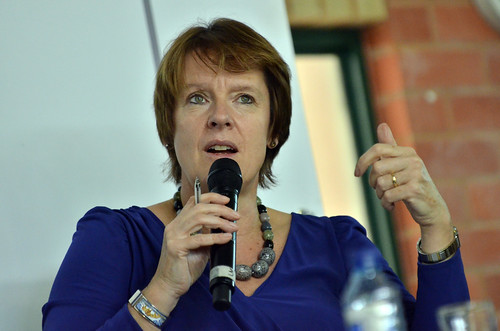
Environment Secretary Caroline Spelman has raised the possibility of standpipes returning to UK streets if the country is hit by a third dry winter in a row.
Mrs Spelman told the BBC's Inside Out programme that while it was "most unlikely" that drought-affected areas would need to use standpipes this year, another dry winter could make it more likely they would have to be brought in.
And while the wettest April on record had been good for the drought situation, she said the heavy rain had not solved the problem - and a wet winter was needed to get things back to normal.
South east, south west and eastern England are in drought along with the Midlands and South and East Yorkshire after two extremely dry winters.
Many areas rely on groundwater for much of their tap water supplies, and the dry winters mean aquifers have not had a chance to recharge when they normally would. Water companies who rely on groundwater for supplies are concerned about what will happen if there is a third dry winter.
Mrs Spelman said: "I'm not deluded into thinking that I can tell you how much rain we are going to get - and it's far too early to tell yet whether we are going to have the wet winter we do need; but whereas it's most unlikely we would have standpipes this year, if we have another dry winter that becomes more likely."
She added: "We really do need a wet winter to get back to normal conditions."
Despite April's record wet weather beginning to restore depleted water levels below ground, the Environment Agency (EA) said it would take much more time and rain to undo the effects of the two dry winters.
Thames Water warned its 8.8 million customers a hosepipe ban would remain in place despite heavy downpours bringing more than double the long-term average rain for the month. The UK's biggest water company said the rain had not made up for a shortfall caused by below-average rainfall in 20 of the previous 25 months.
Drought 2012 - an Inside Out Special airs on BBC1 at 7.30pm on Wednesday.
The Press Association, photo: CGIAR Climate




































